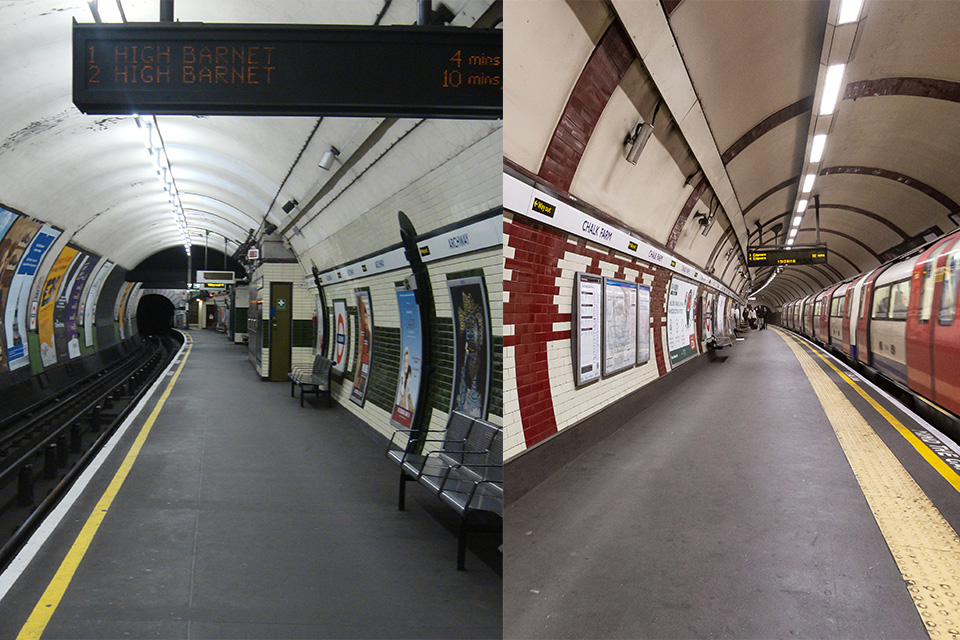
The Rail Accident Investigation Branch has made several recommendations to London Underground Ltd following two incidents last year where passengers were dragged along the platform after their coats were caught in train doors.
The events happened at Archway and Chalk Farm stations, both on the Northern Line of London’s Tube network, on 18 February and 20 April 2023.
In the first incident, a passenger was leaving a train at Archway when the door began to close, trapping their coat.
The train departed and the passenger, who was 101 years old, was dragged for around two metres before falling to the ground, sustaining serious injuries. A companion who was holding on to them also fell but was uninjured.
The train was halted when its operator realised what was happening.
RAIB said the operator had not been aware that the pilot light indicating the doors were closed could still illuminate with something trapped in the closed doors.
Two months later, on 20 April, there was a similar incident at Chalk Farm.
This time the passenger had tried to board a train but stopped as the doors began to close.
Their coat became trapped, but the train departed, dragging the passenger along the platform for about 20 metres until the coat came free.
They fell to the ground, suffering minor injuries to an elbow and both knees and psychological distress.
Again, the door control system did not detect the trapped coat, and on this occasion the train operator was unaware of the accident and continued the journey.
RAIB’s investigation identified underlying factors associated with both accidents, finding that the train operators’ actions may have been affected by the automatic train operation system in use on the Northern line.
Also, it says, the methods for managing the safety of the platform‑train interface were not sufficiently effective in situations like this.
RAIB has made four recommendations to LUL and made three learning points.
The recommendations concern the understanding of risk arising from trap and drag events, the risk mitigation options, the minimum station dwell times and how the design of the task and the cab environment can influence train operators’ attention and awareness.
The learning points concern the importance of documenting action plans in accordance with company procedures and recording when safety briefings have been undertaken, the importance of promptly reporting notifiable accidents to RAIB, and the importance of trainers and managers ensuring that train operators completely understand the risks of relying on the pilot light when deciding whether it is safe to start the train.















Login to comment
Comments
No comments have been made yet.